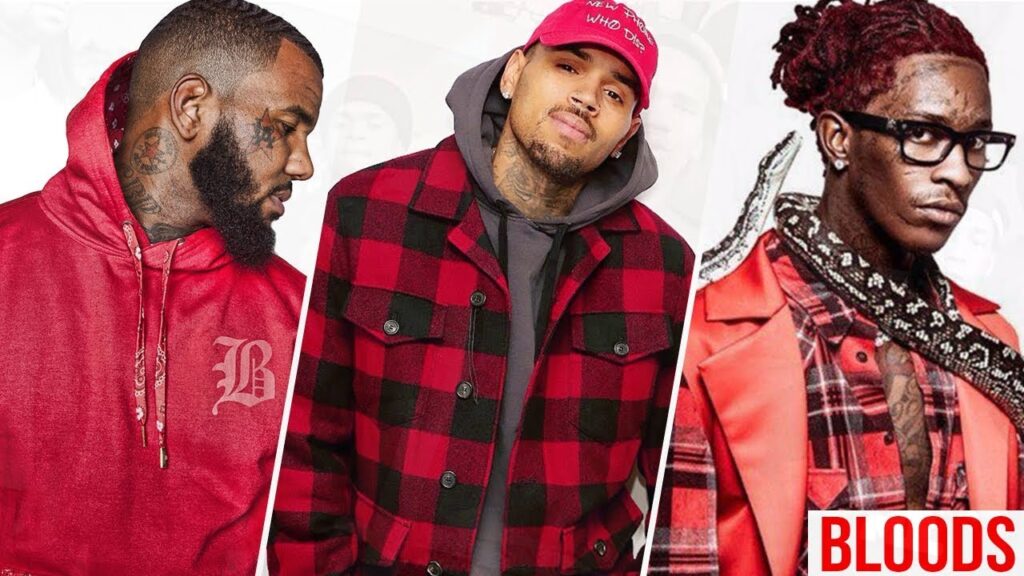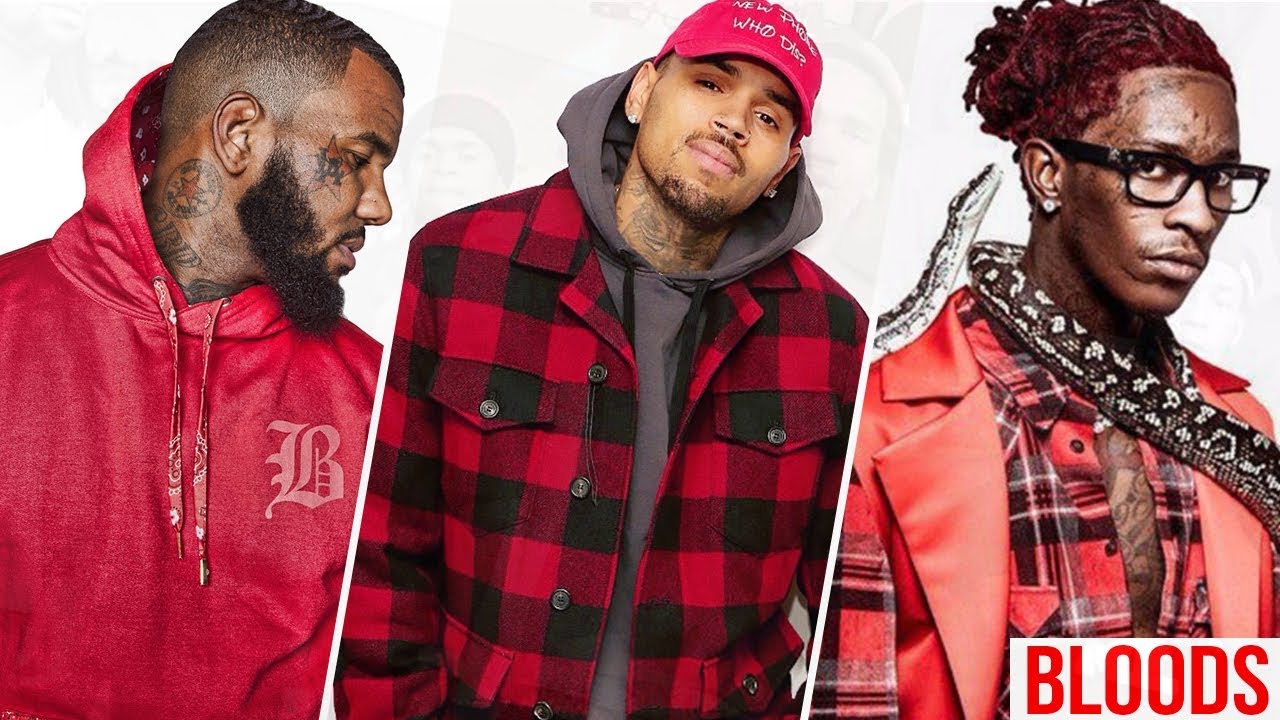
A Comprehensive List of Blood Rappers: Exploring the Intersection of Hip-Hop and Gang Culture
The intersection of hip-hop and gang culture has always been a complex and often controversial topic. Within this intersection, a specific subgenre has emerged, populated by rappers who openly identify as members of the Bloods street gang. This article aims to provide a comprehensive list of Blood rappers, exploring their music, their affiliations, and the impact they have on the broader hip-hop landscape. We will delve into the lives and careers of these artists, examining how their gang membership influences their lyrics, their public image, and their overall artistic expression. Understanding the nuances of this subgenre requires a balanced perspective, acknowledging both the artistic merit and the potential negative consequences associated with glorifying gang life.
Understanding the Bloods and Their Influence on Hip-Hop
The Bloods are a street gang that originated in Los Angeles, California, in the early 1970s. They are primarily known for their rivalry with the Crips, another prominent gang in the region. The Bloods’ influence on hip-hop is undeniable, with many rappers claiming affiliation with the gang and incorporating its symbols, language, and culture into their music. The presence of Blood rappers is not merely a superficial trend; it often reflects a deep-rooted connection to the streets and a desire to represent their communities.
The connection between the Bloods and hip-hop extends beyond mere lyrical content. Many Blood rappers use their music as a platform to share their experiences, perspectives, and struggles growing up in gang-affiliated neighborhoods. Their music can be seen as a form of social commentary, offering insights into the realities of gang life and the challenges faced by young people in these communities. However, it’s crucial to acknowledge the potential for glamorizing violence and criminal activity, which can have a detrimental impact on vulnerable audiences.
Notable Blood Rappers: A Detailed List
This section provides a list of Blood rappers, highlighting their contributions to hip-hop and their connection to the Bloods gang. It’s important to note that gang affiliation is a serious matter, and this list is presented for informational purposes only.
- YG: One of the most commercially successful Blood rappers, YG hails from Compton, California, and is openly affiliated with the Bloods. His music often reflects his experiences growing up in a gang-ridden environment. His debut album, “My Krazy Life,” was a critical and commercial success, solidifying his place in the hip-hop mainstream. [See also: YG’s Discography and Impact on West Coast Hip-Hop]
- The Game: Another prominent figure in West Coast hip-hop, The Game has been associated with the Bloods for many years. His music frequently references gang culture and his personal experiences with violence. He’s known for his lyrical prowess and his ability to craft compelling narratives about life on the streets. The Game’s authenticity resonates with many listeners who appreciate his raw and unfiltered portrayal of gang life.
- Blueface: Known for his unconventional flow and offbeat delivery, Blueface has also publicly acknowledged his affiliation with the Bloods. His rise to fame was meteoric, fueled by viral hits and a unique persona. While his music often features catchy hooks and playful lyrics, he also incorporates elements of gang culture into his image and branding.
- Mozzy: Hailing from Sacramento, California, Mozzy is a respected figure in the West Coast rap scene. He is known for his gritty and realistic depictions of street life, often touching on themes of poverty, violence, and redemption. Mozzy’s music is deeply rooted in his personal experiences and his connection to the Bloods gang. [See also: Mozzy’s Influence on Sacramento Hip-Hop]
- Waka Flocka Flame: While he doesn’t always explicitly rap about gang life, Waka Flocka Flame has been associated with the Bloods through his upbringing and personal connections. His high-energy performances and aggressive delivery have made him a popular figure in the trap music scene.
- Slim 400: (deceased) Slim 400, another artist from the West Coast, was known for his authenticity and his unapologetic portrayal of life in the streets. He was openly affiliated with the Bloods and often rapped about his experiences with gang violence and the challenges of navigating that world. His death in 2021 was a tragic loss for the hip-hop community.
- G Perico: G Perico is a rising star in the Los Angeles hip-hop scene, known for his smooth flow and his throwback style. He’s also openly affiliated with the Bloods and often incorporates elements of gang culture into his music and image. His music is characterized by its authenticity and its connection to the streets of South Central Los Angeles.
This list of Blood rappers is not exhaustive, and there are many other artists who have either claimed affiliation with the Bloods or have been associated with the gang through their music and their personal lives. It’s important to note that the relationship between hip-hop and gang culture is complex and multifaceted, and it’s crucial to approach this topic with sensitivity and respect.
The Controversy Surrounding Blood Rappers
The association of hip-hop with gang culture has been a source of ongoing controversy. Critics argue that Blood rappers often glorify violence and criminal activity, which can have a negative influence on young people. They also point to the potential for real-world violence to erupt as a result of gang rivalries that are amplified through music. The glorification of gang life can normalize criminal behavior and desensitize listeners to the consequences of violence.
However, supporters of Blood rappers argue that their music is simply a reflection of their lived experiences. They contend that these artists are providing a voice for marginalized communities and shedding light on the realities of gang life. They also argue that censorship is not the answer and that artists should be free to express themselves without fear of reprisal. The debate over the role of Blood rappers in society is complex and nuanced, with valid arguments on both sides.
The Future of Blood Rappers in Hip-Hop
The future of Blood rappers in hip-hop is uncertain. As the genre continues to evolve, it remains to be seen whether the trend of gang affiliation will continue to be a prominent feature. However, it’s likely that the connection between hip-hop and street culture will persist, as many artists draw inspiration from their personal experiences and their surroundings. The key will be for artists to find ways to express themselves authentically while also being mindful of the potential consequences of glorifying violence and criminal activity.
Ultimately, the responsibility lies with both the artists and the audience to engage with this music in a critical and thoughtful way. Listeners should be aware of the potential for negative influences and should not blindly accept the messages conveyed in the lyrics. Artists, on the other hand, should consider the impact their music has on their audience and strive to use their platform to promote positive change. The ongoing dialogue surrounding Blood rappers and their role in hip-hop is essential for fostering a more responsible and ethical music industry.
Conclusion
The list of Blood rappers provided in this article offers a glimpse into the complex and often controversial intersection of hip-hop and gang culture. While these artists have made significant contributions to the genre, it’s crucial to acknowledge the potential negative consequences associated with glorifying gang life. By engaging with this music in a critical and thoughtful way, we can promote a more responsible and ethical hip-hop landscape. It’s important to remember that music is a powerful force, and it has the potential to both inspire and influence. By understanding the nuances of this subgenre, we can better appreciate the complexities of hip-hop and its impact on society. The discussion surrounding Blood rappers is an ongoing one, and it’s essential to continue to engage in this dialogue in order to foster a more informed and nuanced understanding of the relationship between music and culture.

